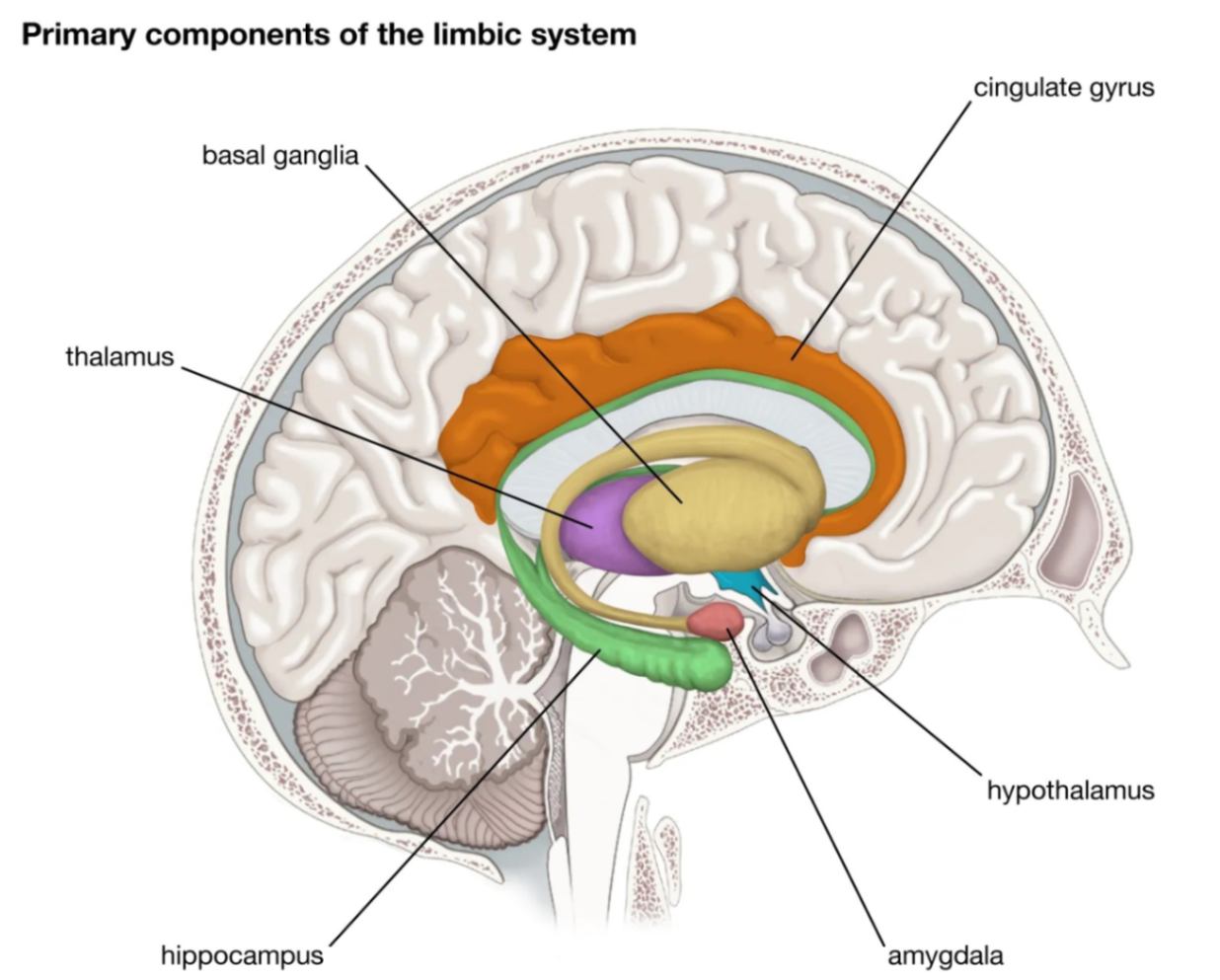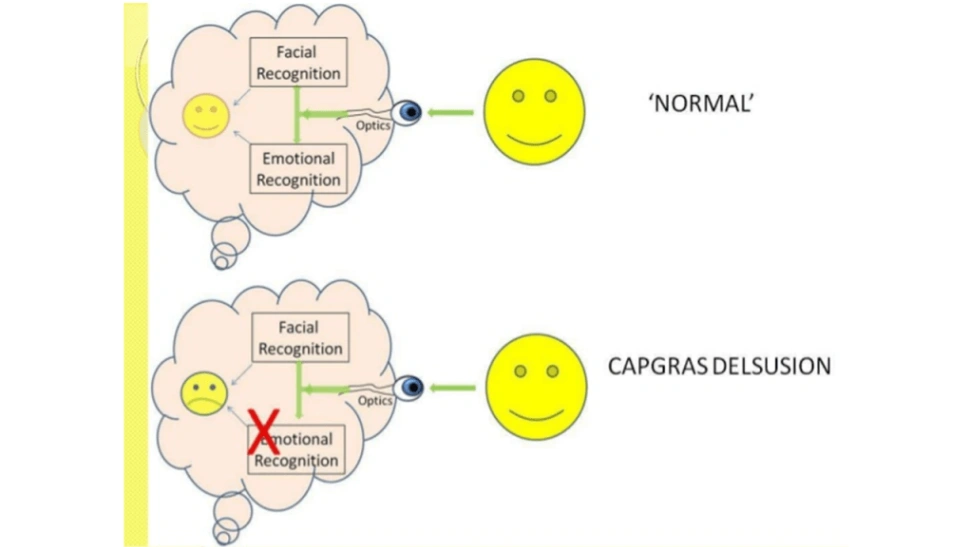Suppose your mother has an identical twin that you didn’t know about. One day when your mother is away, her twin comes home and pretends to be your mother. After interacting with her for some time, you will get a feeling something is different. As time goes you will feel she’s like a totally different person and you’ll be confused. This is how patients with Capgras Syndrome feel about their real parents but for a different reason. They believe that their real parents have been replaced by imposters who look exactly like them.
They recognize that the imposters look like their parents, so there’s no problem with their vision. And they usually don’t claim that everyone is an imposter, only those they have been close with, like their parents, spouse, pet animal, etc.
Emotions
Our brain attaches some kind of emotions to objects and people familiar to us. These emotions are evoked whenever we see them. A region inside the temporal lobes of our brain recognizes objects and faces we see and sends this information to the limbic system of the brain, which then creates appropriate emotional responses for that object. This is how we normally feel emotions when we see people known to us. The emotion may be love, anger, disappointment, or anything.

The Disconnection
Now, what if the face recognition region and the limbic system are disconnected due to some damage to the brain? You will recognize who they are but you won’t feel any emotions about them. So she looks like your mother but doesn’t feel like your mother. The analytical part of your brain is confused by this conflicting information. And to resolve this conflict, your brain concludes that she’s an imposter. Patients don’t feel this way about others whom they are not emotional about. Because they’ve never felt any strong emotion about them, there’s no conflicting information. But with your mother, you used to feel some emotions and suddenly it’s not there.

Severe Cases
There is a recorded case where a patient with this problem believed that his stepfather was a robot. He decapitated his stepfather and opened his skill to look for microchips. Here the emotional disconnect is so extreme that he was convinced that his stepfather was not even a human being.
These patients can identify their parents over the phone without problems because only the face recognition region is disconnected from the limbic system. Other regions may still be connected to the limbic system and they can feel other emotions fine. In case the limbic system is disconnected from all the sensory regions of the brain, patients can’t feel any emotion to anything at all. Guess what the brain will conclude in this case. Patients will claim that they are already dead! Because this is as close as you can come to being dead. This is called Cotard’s syndrome.
You can read more about this in chapter 8 of the book Phantoms in the Brain by V.S. Ramachandran. It is an interesting neuroscience book for common people.
Here’s a thought
Now your brain has learned about Capgras Syndrome. If you were affected by this disease in the future, what do you think your brain would conclude? Will you still say your mother is an imposter or will you self-realize that you have this disease?
Reference Links
https://en.wikipedia.org/wiki/Capgras_delusion
https://www.medicalnewstoday.com/articles/320042
https://www.webmd.com/schizophrenia/cotards-syndrome
